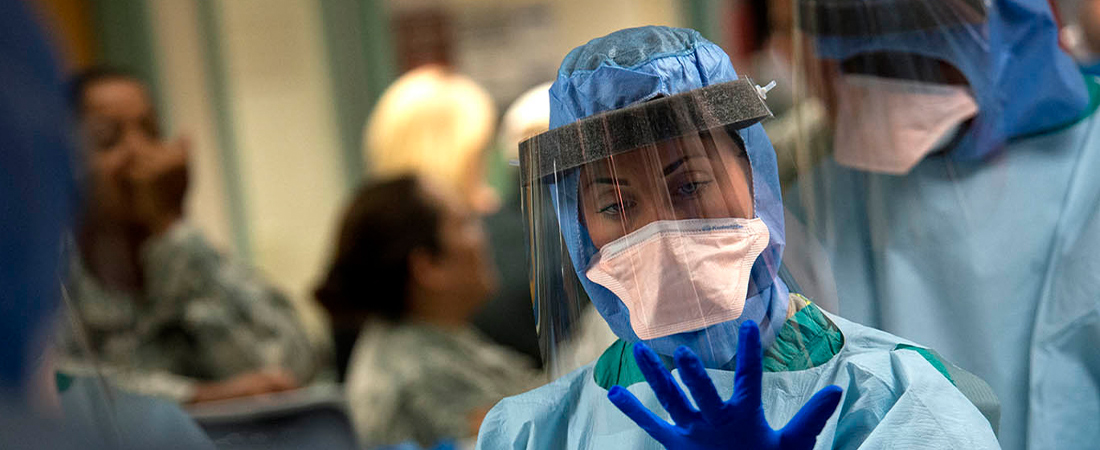New Course Teaches Students about COVID-19

Photo credit: U.S. Air Force photo/Master Sgt. Jeffrey Allen
While the current COVID-19 pandemic is causing disruptions in almost every sector of society, it is also providing a real-world window into how infectious diseases are spread. This makes it a perfect teachable moment for science, says EDC’s Rebecca Lewis.
“I tell my own kids that we are living though a historic moment,” Lewis says. “We can use this time to help engage students in thinking about science, why science matters, and how science works.”
Lewis oversaw development of Responding to a Mystery Illness, a new online curriculum from the Amgen Biotechnology Experience (ABE). EDC has provided programmatic and curricular support for ABE through its leadership of the ABE Program Office since 2013.
Responding to a Mystery Illness puts high school students in the role of a World Health Organization staffer who is trying to determine the cause and track the spread of a virulent form of pneumonia that has appeared in China. Through primary source material, data, and discussion questions, students learn what viruses are, how they spread, and how to reduce the rate of transmission.
The virus is eventually revealed to be SARS-CoV-2, which causes COVID-19. The goal of the curriculum is to give students a window into how scientists may be able to develop a vaccine.
ABE is typically an in-person, laboratory-based program, which reaches more than 75,000 students around the world each year. But when schools began closing because of the pandemic, Amgen became interested in putting some of that learning online.
“This was all done in response to the COVID-19 pandemic,” says EDC’s Kristen Bjork, one of the coauthors of the curriculum. “We want students to learn that a deep understanding of the outbreak, from the organism that causes it to the ways it spreads, is critical to being able to end the threat. Only when scientists understand the problem can they solve it using the science of biotechnology.”
So Lewis and Bjork pulled together a team from EDC as well as scientists from Harvard and the University of Toronto, both ABE programs sites, to write the curriculum. They completed it in just over two weeks.
The course is available to all students, not just students whose schools participate in ABE. A teacher’s guide to support implementation of the curriculum is also available. Teachers can either have students complete the materials on their own or engage groups of students in online discussions.
“As a program, ABE is committed to improving scientific literacy,” says Lewis. “And we are living in a climate where we are questioning the role of expertise and, truly, the value of science. This course helps to show just how important, and exciting, science can be.”
NOTE: The teacher's guide requires a password. Contact ABEinfo@edc.org with your name, school/organization, and location to obtain the password.